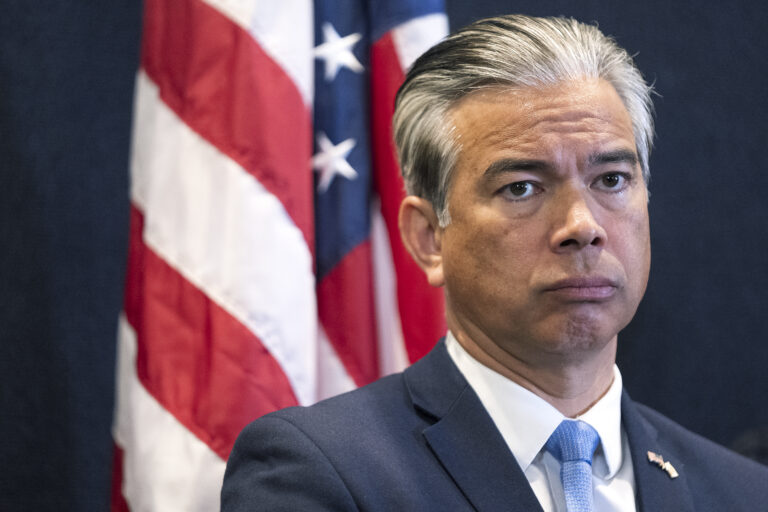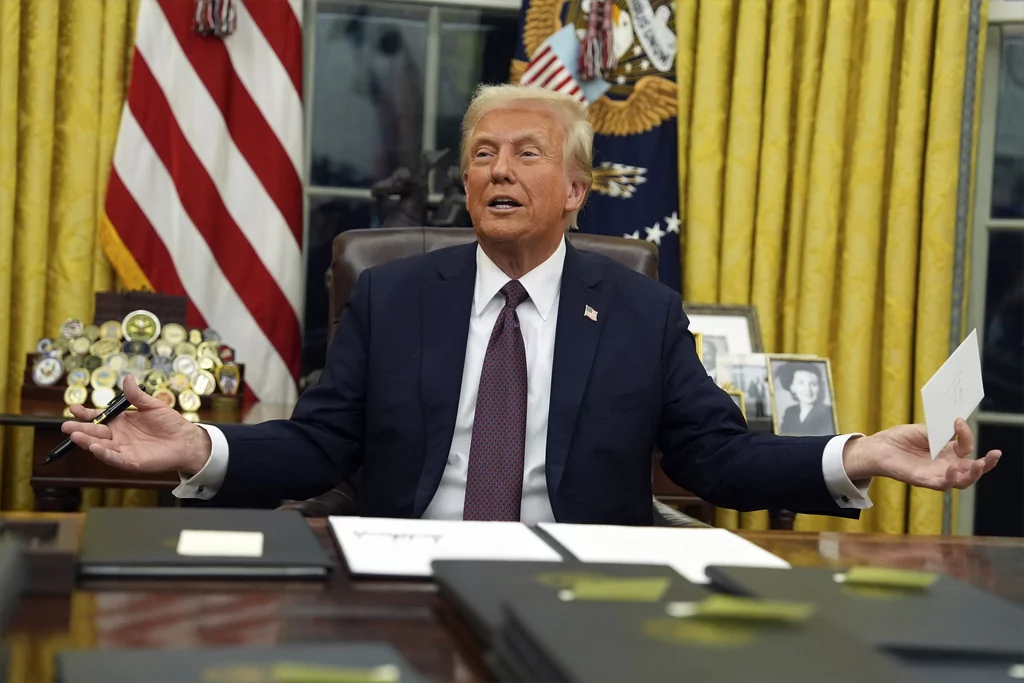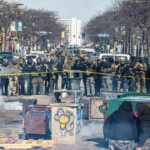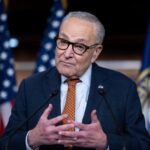
California Attorney General Rob Bonta on Tuesday filed a lawsuit against President Donald Trump, calling his executive order to block birthright citizenship “blatantly unconstitutional’ and “un-American.”
Bonta, a Democrat, said he would defend birthright citizenship, teeing up the first of several expected pushbacks on the new administration.

“Birthright citizenship is a right expressly guaranteed under the U.S. Constitution,” Bonta said. “It is disappointing, but unfortunately unsurprising, that the President chose to disregard the Constitution and attempt to invalidate this right as one of his first acts in office.”
So far, 18 states, plus the District of Columbia and San Francisco, have sued the administration in federal court.
Chapters of the American Civil Liberties Union in New Hampshire, Maine, and Massachusetts, along with other immigrant rights advocates, filed a suit in New Hampshire federal court.
Efforts to end birthright citizenship for the children of illegal immigrants stretch back more than 40 years, but Trump’s return to the White House could prove to be one of the greatest challenges for the 14th Amendment in its 157-year history. Trump, who campaigned on the idea of eliminating birthright citizenship, signed an executive order Monday as one of his first acts as president, ending the right to citizenship for some children born in America.

Specifically, Trump’s executive order states people born in the U.S. are not citizens if their “mother was unlawfully present in the United States and the father was not a United States citizen or lawful permanent resident at the time of said person’s birth,” or if the mother was in the U.S. on a “lawful but temporary” basis like a tourist visa or a student visa and if the father isn’t a citizen or a “lawful permanent resident.”
The first line of the 14th Amendment reads: “All persons born or naturalized in the United States, and subject to the jurisdiction thereof, are citizens of the United States.”
Bonta said his office had been “readying and preparing for months” for Trump and that “all of our actions will be fully dependent on his.”
“A president has authority, but it’s limited,” he added. “A president certainly cannot amend the U.S. Constitution unilaterally.” California has been at the forefront of the 14th Amendment fight.
In 1898, a birthright citizenship case unfolded in the U.S. Supreme Court. The high court held that Wong Kim Ark, who was born in San Francisco to Chinese immigrants, was a U.S. citizen because he was born in the country. Wong had been denied reentry into the country on the grounds that he wasn’t a citizen under the Chinese Exclusion Act. Trump’s executive order would likely provoke a test case to challenge the ruling, giving the Trump administration a chance to overturn it.
Standing in his way are people like Bonta.
“The President’s executive order attempting to rescind birthright citizenship is blatantly unconstitutional and quite frankly, un-American,” Bonta said. “As home of Wong Kim Ark, a San Francisco native who fought — successfully — to have his U.S. citizenship recognized, California condemns the President’s attempts to erase history and ignore 125 years of Supreme Court precedent. We are asking a court to immediately block this order from taking effect and ensure that the rights of American-born children impacted by this order remain in effect while litigation proceeds. The President has overstepped his authority by a mile with this order, and we will hold him accountable.”
Trump’s other executive orders targeting immigration include barring asylum for people arriving at the southern border, suspending the Refugee Admissions Program, declaring migrant crossings along the U.S.-Mexico border a “national emergency,” thereby allowing the administration to unlock federal funding for a border wall without congressional approval, as well as greenlight stricter enforcement efforts. He also signed off on a policy that would require those seeking asylum to stay in Mexico while an immigration judge hears their case.
California and Trump have had a bumpy relationship and the birthright citizenship lawsuit is likely to be the first of many federal court face-offs between the two adversaries.
The state sued Trump’s first administration 123 times, which came out to about $10 million a year in taxpayer money. Trump lost two-thirds of those cases but experts warn that California could have a tougher go this time around because the administration knows what to expect and will likely be better prepared.
“That’s something we are certainly worried about this second time around, that they’ll make the same policy decisions that are bad from our perspective, but do it again in a smarter way that makes them harder to challenge,” Eva Bitrán, director of immigrants’ rights and staff attorney at American Civil Liberties Union of Southern California, said.
CLICK HERE FOR MORE FROM THE WASHINGTON EXAMINER
Besides his immigration policies, Trump is also seeking to revoke the federal waiver allowing California to ban the sale of new gas-powered cars in 2035, a move likely to end up before a judge.
Also on the list of disputes are offshore energy projects, funding for green infrastructure, as well as the designation of two new national monuments in California by former President Joe Biden that prohibits oil and natural gas drilling as well as mining and other exploration on them.






